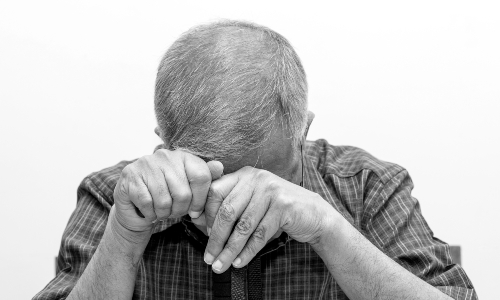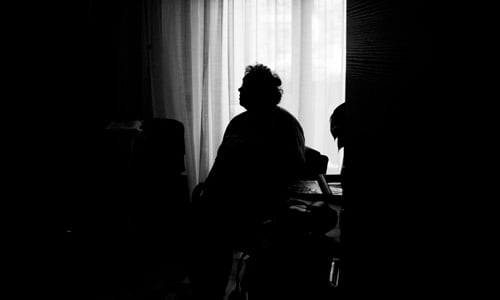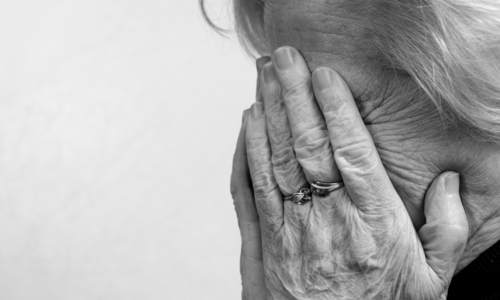The Global 16 Days of Activism Against Gender Based Violence is an annual campaign that runs from 25 November, the International Day of Violence against Women, to 10 December, which is International Human Rights Day.
Older people are often overlooked in discussions about domestic abuse. But domestic abuse can happen at any age. Crime Survey figures show that in 2019 over 189,000 women in the UK between the ages of 16 and 74 reported that they had experienced domestic abuse – a number that increased during the pandemic. The total figure for all ages is likely to be much higher because until October 2021, following a successful campaign by Age UK, domestic abuse data was not collected on individuals aged 75 and over. We also know that older people may face barriers to reporting abuse and there are likely to be many cases of domestic abuse that have not been officially recorded.
Older people and domestic abuse: key facts
Domestic abuse may be physical, sexual, emotional or financial, and it may be a one-off event or part of a pattern. Like younger women, older women may experience one or more of these types of abuse, but age-related factors mean that there are also some key differences. For example:
- Older people are just as likely to be abused by an adult child as they are by an intimate partner;
- Almost half of older people experiencing domestic abuse will have a disability or mobility issue;
- An older person may find it difficult to report abuse or leave a relationship where their abuser is also their carer.
- Men are at increased risk of domestic abuse as they age and the range of potential perpetrators widens.
Barriers to accessing support
Older people experiencing domestic abuse may face a number of barriers to seeking and receiving support.
Frontline healthcare workers may lack awareness about the relationship between domestic abuse and older people, which means that opportunities may be missed to identify those who are at risk and ask the necessary questions.
Where it is clear that abuse has taken place, older people might not receive access to specialist domestic abuse support or resources because abuse experienced by older people is sometimes recorded as ‘elder abuse’ not ‘domestic abuse’, even where the perpetrator is a partner or family member. This is usually due to a lack of understanding about the prevalence and nature of domestic abuse among older people which can have a real impact on the support available to an older victims and survivors.
A lack of data and evidence about older people’s experiences of domestic abuse also means that policies and resources rarely take into account the specific needs of older victims/survivors.
Finally, in many cases an older person may be too scared to access support, may wish to protect family members, or may have normalised abuse that has been going on for a long time.
There are likely to be further barriers to accessing appropriate support for older people who are disabled, from an LGBTQ community, or those from black and minority ethnic backgrounds.
What needs to change?
- Greater awareness among health professionals: Training and guidance should be provided to health professionals that come into contact with older people to enable them to identify signs of domestic abuse. Health professionals should be trained to have conversations about domestic abuse with older patients, and direct them to appropriate support where this is wanted and needed.
- Better data and recording: Too often domestic abuse experienced by older people is recorded incorrectly. This means that appropriate resources may not be put in place for an older person and that available data doesn’t show the scale of domestic abuse among older people.
- Increased resources: More resources should be made available that are designed to meet the specific needs of older victims and survivors.
Age UK is committed to continuing to raise awareness about the experiences of older victims and survivors and to tackling ageist perceptions of domestic abuse.





